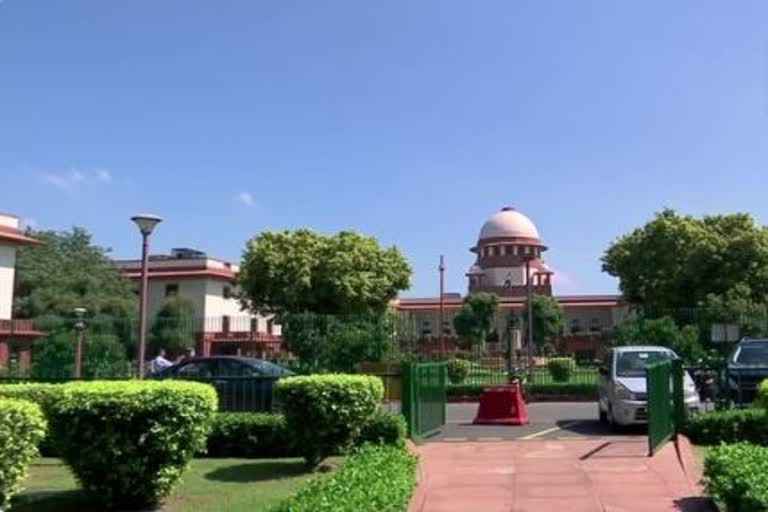New Delhi: The Supreme Court said on Thursday it will form a five-judge constitution bench to hear the petitions seeking a ban on polygamy and 'nikah halala' among Muslims.
A bench comprising Chief Justice D Y Chandrachud and Justices Hima Kohli and J B Pardiwala was urged by lawyer Ashwini Upadhyay, who has filed a PIL on the issue, that a fresh five-judge bench was needed to be constituted as two judges of the previous bench-Justice Indira Banerjee and Justice Hemant Gupta- have demitted office.
"We will form a bench," the CJI responded. The petition was filed by a group of Muslim women, advocates Ashwini Upadhyay and Mohsin Kothari. On August 30, a five-judge bench comprising Justices Indira Banerjee, Hemant Gupta, Surya Kant, M M Sundresh and Sudhanshu Dhulia had made the National Human Rights Commission (NHRC), National Commission for Women (NCW) and the National Commission for Minorities (NCM) parties to the PILs and sought their responses.
The petitioners had sought a ban on the practice of nikah halala and polygamy claiming they were "against fundamental rights". They had sought the declaration of Section 2 of the Muslim Personal Law (Shariat) Application Act be declared unconstitutional and violative of Articles 14, 15, and 21. It was referred to a five-judge constitution bench back in March 2018 and has been pending since then.
What is nikah halala
'Nikah halala' is a process under which a divorced Muslim woman has to first marry another person, consummate it and get a divorce from the second husband, if the couple were to remarry after a compromise. Islam allows a man to divorce his wife a maximum of two times.
On both occasions, separated by at least one menstrual cycle, the man is allowed to cancel the divorce, through word or action during iddah or the waiting period that follows a divorce pronouncement. If the spouses fail to resume cohabitation during this period, they are allowed to remarry without any third-party intervention.
This can be done only twice. If the man takes his wife back after the second pronouncement of divorce and then divorces her for the third time, he is not allowed to marry her again. The woman has to as to first marry another person, consummate it and get a divorce from the second husband in order to remarry her first husband.
SC made NHRC, NCW, and NCM parties
On August 30, a five-judge bench comprising Justices Indira Banerjee, Hemant Gupta, Surya Kant, M M Sundresh and Sudhanshu Dhulia had made the National Human Rights Commission (NHRC), National Commission for Women (NCW) and the National Commission for Minorities (NCM) parties to the PILs and sought their responses.
Later, Justice Banerjee and Justice Gupta retired on September 23 and October 16 this year respectively giving rise to the need for re-constitution of the bench to hear as many as eight petitions against the practices of polygamy and 'nikah halala'. Upadhyay, in his PIL, has sought a direction to declare polygamy and 'nikah halala' unconstitutional and illegal.
The apex court had in July 2018 considered the plea and referred the matter to a Constitution bench already tasked with hearing a batch of similar petitions. The apex court had issued notice to the Centre on the petition filed by a woman named Farjana and tagged Upadhyay's plea to a batch of petitions to be heard by the Constitution bench.
The apex court, which on August 22, 2017 banned the age-old practice of instant 'triple talaq' among Sunni Muslims, had on March 26, 2018 decided to refer to a larger bench a batch of pleas challenging the constitutional validity of polygamy and 'nikah halala'.
The pleas were referred to a larger bench by the Supreme Court after an earlier five-judge constitution bench in its 2017 verdict kept open the issue of polygamy and 'nikah halala' while quashing the practice of 'triple talaq'. It had also issued notices to the Law and Justice Ministry, the Minority Affairs Ministry and the National Commission of Women (NCW) at that time. (Agency inputs)


